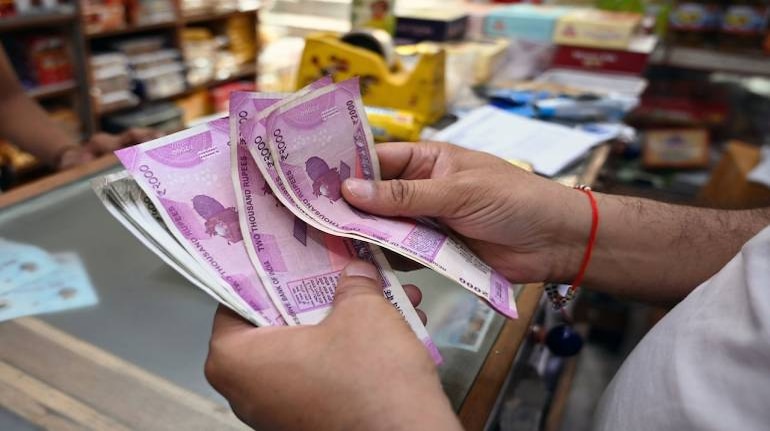



Online dabba traders are actively hiring sub-brokers, with promise of higher 'brokerage' fee and with promise of higher leverage to their clients.
Dabba trading is an unregulated and illegal market for securities, where operators allow people to bet on price movements. Market risk is inherent in investing in stocks but the risk in dabba trading is higher because the intermediaries or operators can simply refuse to settle trades at the end of the day, and investors stand to lose even if they make profits in trading.
As one trader who lost money on a dabba-trading app told Moneycontrol, “You make losses, the dabba-trading apps/businesses make money in the ‘brokerage’ fee. You make a profit, they make more money… because they don’t have to pay you out.”
Dabba traders do not usually advertise their services, and enroll clients only through recommendations, but online dabba traders seem to be functioning in a whole different manner.
Online dabba operators don’t have credibility and therefore need people who can convince people in their close circle to give it a try. That is where the sub-brokers come in. Sub-brokers are promised higher earnings from the higher ‘brokerage’ (operator fee) these platforms charge clients.
In one app that Moneycontrol tried out, the fee was charged per lot as against regulated brokerage platforms that charge per order that can be made up of multiple lots. Investors are won over by the promise of high leverage and by reminding them that they won’t lose money on taxes. “The tax hook is particularly appealing to small retail investors who don’t want 30 percent of profits made on a small base to be taken out,” says a market insider.
The modus operandi
The link to download the app isn’t easily available and is sent only when a number is ‘recommended’ to the app provider.
To see how the arrangement works, Moneycontrol posed as a party interested in the sub-broking business and got access to one such app.
This reporter’s number was sent to an app provider and received a link with a .apk extension, which could not be found Google Play. Following this, the reporter was offered a sub-brokerage business with a 40-50 percent cut of the ‘brokerage’ earned by the platform Trade Dost. On this platform, brokerage charges are much higher at Rs 40 per lot in NSE Options and Rs 20 per lot in NSE Currency. On a regulated brokerage platform, it is Rs 20 per order (which could have multiple lots). It also allows betting on cryptocurrency with a fee charged of Rs 5,000 on every transaction worth a crore.
The sub-brokers are also told that the clients will be offered high leverage of as much as 500x in intraday segment and 60x in carry-forward trades.
On the platform, a sub-broker is expected to bring in a minimum of five clients. Once that is done, he/she is given a panel on the app through which he/she can monitor the client’s trades and how much money it is bringing into the sub-broker’s account.
In this reporter’s case, after a small negotiation, the minimum number of clients to ‘earn’ a panel was reduced to four and then to three. To sign-on a client, the sub-broker would need to get the client to transfer a minimum amount to the service provider’s bank account. In this case, the app took payment on a Google Pay number linked to an HDFC bank account (UPI ID: pnkjydv0123@okhdfcbank).
The amount is then reflected in the client’s account on the platform. Though there is a pay-in tab provided, a client cannot enter the money directly into his/her account. It goes through a bank account owned by a ‘sub-broker’—in this case Pankaj Yadav’s (going by the G Pay name).
The client account should maintain a minimum of Rs 25,000 though there is an option to try with a minimum amount of Rs 1,000 and then raise it further.
To make the client more comfortable, the platform even has a demo video made that shows how the various functionalities of the app work.
The app, which opens with a note that it is only meant for training purposes, has an easy-to-use interface and real-time price feeds.
Also read: NSE cautions investors against 'dabba' trading
Providing real-time price feeds is prohibited by the market regulator to prevent dabba trading. But, as an earlier story on Moneycontrol informed, a few authorised firms buy price feeds from the exchanges and then resell it to such platforms.
There are tabs to see quotes, trades taken, the portfolio performance so far, and a ledger master that tracks whatever profit or loss has been made so far.
While the online version seems more convenient than the offline version, its anonymity makes it significantly more dangerous than the offline version. “If you lose money trading on the dabba, online or offline, where do you go complain? The police will ask you why you didn’t go through the legitimate channel,” says the trader quoted earlier, who lost Rs 40,000 on such an app and now tries to warn others on Telegram channels that try to bring in investors.
Discover the latest Business News, Sensex, and Nifty updates. Obtain Personal Finance insights, tax queries, and expert opinions on Moneycontrol or download the Moneycontrol App to stay updated!
Find the best of Al News in one place, specially curated for you every weekend.
Stay on top of the latest tech trends and biggest startup news.